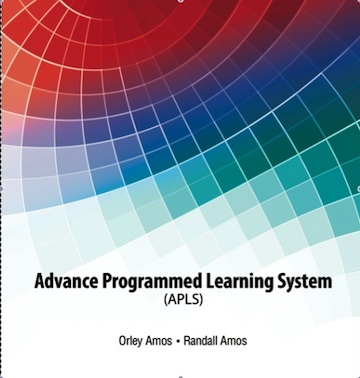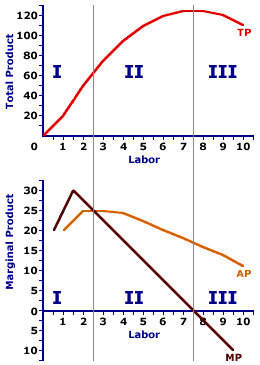What Are The Stages Of Production
| |
| FAVORABLE BALANCE OF PAYMENTS: An imbalance in a nation's balance of payments in which payments made by the country are less than payments received by the country. This is also termed a balance of payments surplus. It's considered favorable because more currency is flowing into the country than is flowing out. Such an unequal flow of currency will expand the supply of money in the nation and subsequently cause a decrease in the exchange rate relative to the currencies of other nations. This then has implications for inflation, unemployment, production, and other facets of the domestic economy. A balance of trade surplus is often the source of a balance of payments surplus, but other payments can turn a balance of trade surplus into a balance of payments deficit. Visit the GLOSS*arama |


| | |||||
| PRODUCTION STAGES: The three stages of production are characterized by the slopes, shapes, and interrelationships of the total, marginal, and average product curves. The first stage is characterized by a positive slope of the average product curve, ending at the intersection between the average product and marginal product curves; the second stage by continues up to the point in which the marginal product becomes negative, at the peak of the total product curve; and the third stage exists over the range of in which the total product curve is negatively sloped. In Stage I, average product is positive and increasing. In Stage II, marginal product is positive, but decreasing. And in Stage III, total product is decreasing.Short-run production by a firm typically encounters three distinct stages as a larger amounts of a variable input (especially labor) are added to a fixed input (such as capital). The first stage results from increasing average product. The second stage sets it at the peak of average product, experiencing a wide range of decreasing marginal returns, and the law of diminishing marginal returns. The third stage is then characterized by negative marginal returns and. Three Product Curves
The top panel contains the total product curve (TP). It generally rises, reaches a peak, then falls. The bottom panel contains the marginal product curve (MP) and the average product curve (AP). Both curves rise a bit for small quantities of the variable input labor, then decline. Marginal product eventually turns negative, but average product remains positive. The three short-run production stages are conveniently labeled I, II, and III, and are separated by vertical lines extending through both panels. Stage IShort-run production Stage I arises due to increasing average product. As more of the variable input is added to the fixed input, the marginal product of the variable input increases. Most importantly, marginal product is greater than average product, which causes average product to increase. This is directly illustrated by the slope of the average product curve.Consider these observations about the shapes and slopes of the three product curves in Stage I.
Stage IIIn Stage II, short-run production is characterized by decreasing, but positive marginal returns. As more of the variable input is added to the fixed input, the marginal product of the variable input decreases. Most important of all, Stage II is driven by the law of diminishing marginal returns.The three product curves reveal the following patterns in Stage II.
Stage IIIThe onset of Stage III results due to negative marginal returns. In this stage of short-run production, the law of diminishing marginal returns causes marginal product to decrease so much that it becomes negative.Stage III production is most obvious for the marginal product curve, but is also indicated by the total product curve.
Economic ProductionThese three distinct stages of short-run production are not equally important. Stage I, and with largely increasing marginal returns, is a great place to visit, but most firms move through it quickly. Because each variable input is increasingly more productive, firms employ as many as they can, as quickly as they can. Stage III, with negative marginal returns, is not particularly attractive to firms. Production is less than it would be in Stage II, but the cost of production is greater due to the employment of the variable input. Not a lot of benefits are to be had with Stage III.Stage II, with decreasing but positive marginal returns, provides a range of production that is suitable to most every firm. Although marginal product declines, additional employment of the variable input does add to total production. Even though production cost rises with additional employment, there are benefits to be gained from extra production. The trick is to balance the extra cost with the extra production. As a matter of fact, because Stage II tends to be the choice of firms for short-run production, it is often referred to as the "economic region." Firms quickly move from Stage I to Stage II, and do all they can to avoid moving into Stage III. Firms can comfortably, and profitably, produce forever and ever in Stage II.
 Recommended Citation: PRODUCTION STAGES, AmosWEB Encyclonomic WEB*pedia, http://www.AmosWEB.com, AmosWEB LLC, 2000-2021. [Accessed: November 19, 2021]. Check Out These Related Terms... | marginal returns | increasing marginal returns | decreasing marginal returns | law of diminishing marginal returns | production inputs | production function | production time periods | total product | marginal product | average product | Or For A Little Background... | short-run production analysis | product | production | production cost | variables | labor | capital | firm | business | marginal analysis | factors of production | microeconomics | And For Further Study... | long-run production analysis | division of labor | production possibilities | law of increasing opportunity cost | total product and marginal product | average product and marginal product | total product and average product | long-run average cost | Search Again? Back to the WEB*pedia |




| |
| GREEN LOGIGUIN [What's This?] Today, you are likely to spend a great deal of time wandering around the shopping mall seeking to buy either a how-to book on home remodeling or a tall storage cabinet with five shelves and a secure lock. Be on the lookout for telephone calls from former employers. This isn't me! What am I? |
| |
| Only 1% of the U.S. population paid income taxes when the income tax was established in 1914. |
| |
| "The first responsibility of a leader is to define reality. " -- Max DePree, executive |
| |
| PTA Preferential Trade Agreement |
| |
| Tell us what you think about Amos WEB. Like what you see? Have suggestions for improvements? Let us know. Click the User Feedback link. User Feedback |


What Are The Stages Of Production
Source: https://www.amosweb.com/cgi-bin/awb_nav.pl?s=wpd&c=dsp&k=production+stages
Posted by: etheridgethersen.blogspot.com


0 Response to "What Are The Stages Of Production"
Post a Comment